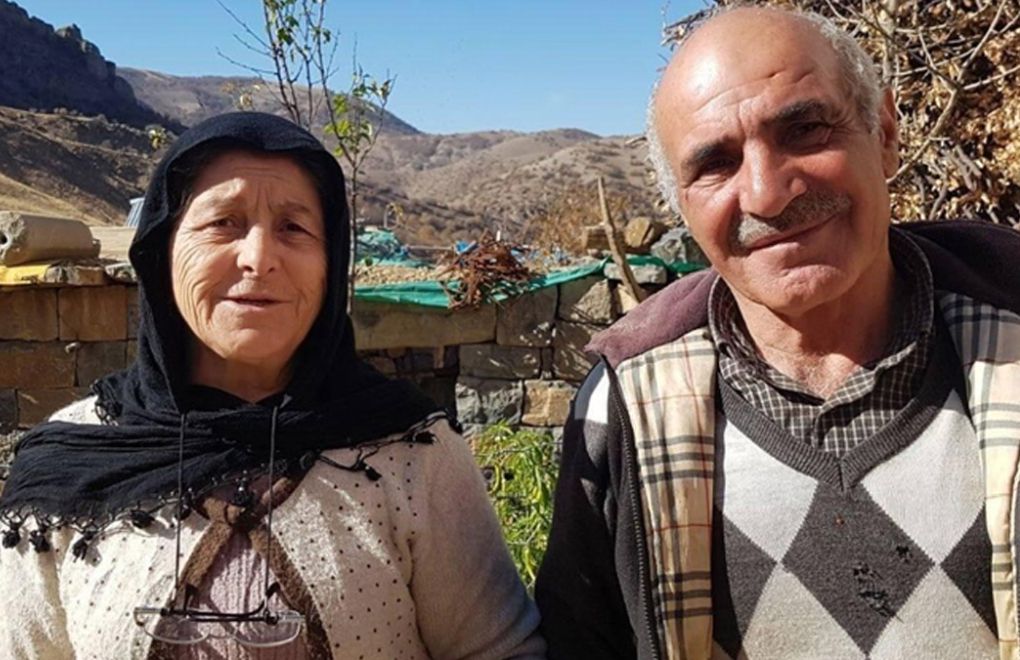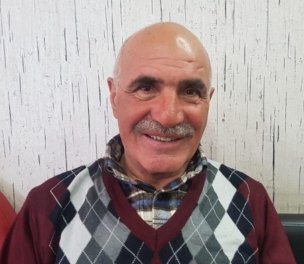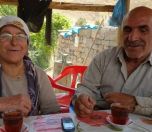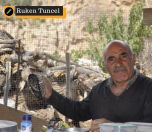Click to read the article in Turkish
32 Assyrian* and Chaldean organizations from France, Belgium, the United States (US), Sweden, Australia and Iraq have addressed an open letter to Turkey's Ministry of Justice and Ministry of Interior and requested that Hurmüz Diril, who has been missing since January 12, 2020, be found and the death of his wife Şimuni Diril be brought into light.
CLICK - 'When a loved one dies, you cry for a day; when missing...'
Şimuni Diril and Hurmüz Diril went missing in their village in Şırnak on January 11, 2020. While the dead body of Şimuni Diril was found by their son Kemal Diril on the shore of a brook some 800 meters away from their house 70 days later, Hurmüz Diril is still missing.
'Bring perpetrators to justice'
The full letter of the organizations is as follows:
"Dear Mr. Gül, Dear Mr. Soylu,
"Some time between January 8 and 11,2020 an Assyrian Christian couple Hürmüz Diril, 71, and his wife Şimuni, 65, were kidnapped from their village of Meer/Kovankaya in the Province of Şımak (southeastern Turkey).
"The remains of Şimuni were found by her two sons at the nearby river in the village on March 20, two months after the abduction. At this time, the fate of their missing father is still not known.
"One year later, the family is still asking the government authorities to help find their missing father and to bring perpetrators to justice.
Three requests from ministries
"On this solemn anniversary of the couple's kidnapping, we as Assyrian and non-Assyrian organizations and institutions write this, urging:
1. Ministry of Justice to mobilize prosecutors to respect the right to life of the victims and honor the procedural requirements stemming from Article 2 of the European Convention on Human Rights and bringing perpetrators of these malicious actions before the judicial system.
2. Ministry of Justice to launch an investigation into the procedural failures involving Şimuni Diril's autopsy report performed by Istanbul Forensic Medicine Institute. We also request a full disclosure of the autopsy report to her children and their attorneys.
3. Ministry of Interior to launch a serious investigation about Mr. Diril's fate; to establish whether he is still alive or dead; to establish whether he is a victim of abduction or murder.
"The trauma and severe anguish inflicted on this family is unimaginable as they have been kept in the dark with reasons why such heinous crime was committed against their beloved parents.
'It will instill reassurance in hearts'
"The Diril family is one of the few Assyrian Christian families remaining in that region. In the past (more than 50 years ago) the Assyrians made up the majority of the population of the region.
"However, because of the 35-year conflict between the Turkish military and the PKK, the Assyrians have been forced to flee their lands, vacating these historical areas from their original inhabitants. The very few families who have decided to remain have done so in the hope of rebuilding their homes and churches and reviving their ancient villages.
"It is imperative to note that uncovering the circumstances of this crime as soon as possible and bringing the perpetrators to justice would instill a spirit of reassurance and security in the hearts of the Assyrians and the rest of the Christians in Turkey. We implore you to take all steps necessary to bring the perpetrators of this heinous crime to justice."
The undersigned organizationsAssyria News - Belgium |
* About Assyrian–Chaldean–Syriac people
Assyrians are an ethnic group indigenous to Assyria, a region in the Middle East. There are East and West Syriacs (Süryani in Turkish). East Syriacs are named as "Assyrians" in English (and Asuri in Turkish).
The Eastern Aramaic-speaking Assyrians are descendants of the ancient Assyrians, and are one of the few ancient Semitic ethnicities in the Near East who resisted Arabisation, Turkification and Islamisation during and after the Arab conquest of Iraq, Syria, Turkey and Iran.
The indigenous Assyrian homeland is within the borders of northern Iraq, southeastern Turkey, northwestern Iran, and more recently, northeastern Syria, a region roughly corresponding with Assyria from the 25th century BC to the seventh century AD.
Assyrians are predominantly Christian, mostly adhering to the East and West Syriac liturgical rites of Christianity. The churches that constitute the East Syriac rite include the Chaldean Catholic Church, Assyrian Church of the East, and the Ancient Church of the East, whereas the churches of the West Syriac rite are the Syriac Orthodox Church and Syriac Catholic Church.
(RT/SD)












